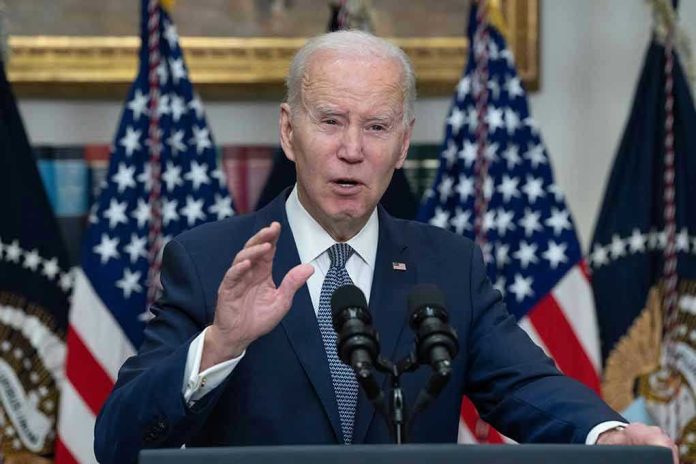
Jeff Zients’s testimony reveals alarming insights into Biden’s cognitive decline, questioning the extent of staff control over presidential decisions.
Story Overview
- Jeff Zients, Biden’s former chief of staff, testified about Biden’s cognitive decline during his presidency.
- The testimony contradicts previous public assurances from the White House about Biden’s mental fitness.
- Concerns are raised over the use of the autopen and staff involvement in decision-making.
- The House Oversight Committee is investigating potential concealment by White House staff.
Zients’s Revelations and Implications
On September 18, 2025, Jeff Zients, former chief of staff to President Joe Biden, testified before the House Oversight Committee about Biden’s cognitive condition during his final years in office. Zients admitted that Biden’s memory and decision-making capabilities had declined, requiring more support from staff. This testimony raises constitutional questions about the extent of staff involvement in presidential duties, particularly regarding the use of the autopen for signing official documents and issuing pardons.
The testimony contradicts earlier public statements from the White House, which asserted that Biden was “sharp” and “fully capable” during his 2024 campaign. Zients’s admissions have amplified debates over the transparency of presidential health disclosures and the ethical implications of staff potentially overshadowing a president’s authority. The investigation is set in a politically charged atmosphere, with Republicans controlling the House and keen on scrutinizing Democratic leadership.
Historical Context and Concerns
Concerns about Biden’s cognitive abilities have been a topic of public and media scrutiny since his 2020 campaign. These concerns intensified during his presidency, especially after a poor debate performance in June 2024. Following the debate, internal discussions reportedly took place about adjusting Biden’s schedule and possibly conducting cognitive testing. The House Oversight Committee’s investigation is focused on whether these concerns were concealed and if staff overstepped their roles.
Historically, presidential health has been a sensitive issue, with past presidents like Ronald Reagan and Woodrow Wilson facing similar scrutiny. The controversy over the use of the autopen, previously seen during President Obama’s tenure, adds another layer to the ongoing debate about executive authority and transparency.
Potential Outcomes and Reforms
The implications of Zients’s testimony are far-reaching. In the short term, it increases scrutiny on White House operations and the roles of senior staff during Biden’s presidency. Politically, this could result in fallout for Democratic leadership. In the long term, the case might prompt reforms in how presidential health is disclosed and the authority of staff members. Legal scholars are debating the constitutional implications, particularly in relation to the 25th Amendment, which addresses presidential incapacity.
The Oversight Committee is expected to release its final report soon, potentially setting a precedent for future inquiries into presidential capacity. This situation underscores the need for transparency in executive health disclosures and could lead to legislative proposals for mandatory cognitive testing or reporting.
Sources:
House Oversight Committee official letter (PDF)




